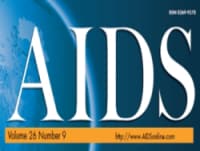In this study of 12 people with HIV (PWH) who received the first dose of SARS-CoV-2 mRNA vaccination, anti-SARS-CoV-2 receptor-binding domain antibodies were detectable in all participants; lower antibody levels were seen in those with lower CD4+ counts, and vaccine reactions were generally mild.
People with HIV (PWH) were included in the original severe acute respiratory syndrome coronavirus 2 (SARS-CoV-2) mRNA vaccine trials in small numbers [0.6% for mRNA-1273 (Moderna) and 0.5% for BNT162b2 (Pfizer/BioNTech)], yet the immunogenicity and safety of the vaccines has not been reported in this subgroup.[1,2] Vaccination is currently recommended for all PWH; however, some have expressed vaccine hesitancy for fear of harmful side effects and unknown effectiveness.[3,4] We, therefore, studied the antibody response and reactogenicity to the first dose of SARS-CoV-2 mRNA vaccination in PWH.
PWH in the United States at least 18 years old without prior known history of coronavirus disease 2019 (COVID-19) infection were recruited to participate in this prospective cohort via social media outreach to national HIV/AIDS organizations between 15 January 2021 to 5 March 2021. Participants enrolled via an online questionnaire and reported their most recent HIV viral load (detectable/undetectable), most recent CD4+ count (<200, 200–350, 350–499, ≥500 cells/μl), presence/absence of current antiretroviral therapy (ART) and duration of treatment (<6 or ≥6 months).
Participants underwent SARS-CoV-2 antibody testing via the Roche Elecsys anti-SARS-CoV-2S enzyme immunoassay prior to dose 2. The assay measures total antibody (IgM, IgG) to the SARS-CoV-2 S-receptor-binding domain (RBD) protein.[5] Results range from <0.4 U/ml to >250 U/ml; positive is ≥0.8 U/ml. The assay is analogous to those used in early mRNA vaccine trials, in which, for example, 100% seroreactivity was seen by 15 days after Moderna mRNA-1273 vaccination.[6,7] One week after receiving the first dose, participants completed a questionnaire detailing local and systemic reactions and other adverse events including anaphylaxis, incident neurologic diagnoses, infections, or SARS-CoV-2 infection. This study was approved by the Johns Hopkins Institutional Review Board (IRB00248540); participants consented electronically.
Twelve participants were studied, completing antibody testing at a median [interquartile range (IQR)] of 21 (17–27) days after vaccination (50% Moderna, 50% Pfizer/BioNTech) (Table 1). Median (IQR) age was 64 years (57, 70); all were male, 8% were nonwhite. All were on ART at least 6 months and 92% had an undetectable HIV viral load. Six (50%), three (25%), one (8%), and two (17%) of individuals reported CD4+ counts at least 500, 350–499, 200–349, and less than 200 cells/μl, respectively. Anti-RBD assays were positive for all, ranging from 2.12 U/ml to >250 U/ml.
Local and systemic reactions were modest; all reported mild or moderate pain at the injection site (Supplemental Figure, http://links.lww.com/QAD/C146). Mild or moderate fatigue or myalgia were reported by 50 and 42%, respectively. No participants experienced a severe reaction preventing daily activity, developed COVID-19, had anaphylaxis, or developed a new neurologic condition or infection.
In this small study of humoral response to mRNA SARS-CoV-2 vaccination in PWH, all participants developed anti-SARS-CoV-2 RBD antibodies after the first dose and reactions were generally mild. To date, no correlate of protection from COVID-19 has been established, though antispike antibody responses to mRNA vaccination have been associated with protection.[8] Studies of antibody response to mRNA SARS-CoV-2 vaccination in other immunocompromised populations have shown decreased immunogenicity in people taking antimetabolites and agents known to impact B-cell function such as rituximab, whereas T-cell inhibition has not been clearly associated with nonresponse.[9,10] Notably, the two included participants with CD4+ counts less than 200 cells/μl developed relatively lower antibody levels. CD4+ count has been significantly associated with decreased humoral response to multiple vaccines in PWH including hepatitis A, hepatitis B, and pneumococcus vaccines,[11–14] which is likely because of the role of CD4+ cells in germinal center formation.[15] Mostly mild reactions with minimal adverse events to the first dose of SARS-CoV-2 mRNA vaccination is consistent with what was seen in the original vaccine trials[1,2] and in immunocompromised patients.[16,17]
This is a small preliminary sample on the response to the first dose in a two-dose series, limited by a nonrandomized sample, which lacks heterogeneity in sex, race, and age. This early reporting of antibody response and mild reactogenicity to SARS-CoV-2 vaccination in PWH should be reassuring to patients and providers, though larger, deeper characterization of humoral and cellular immunity and safety profiling after completion of the vaccine series is warranted.

